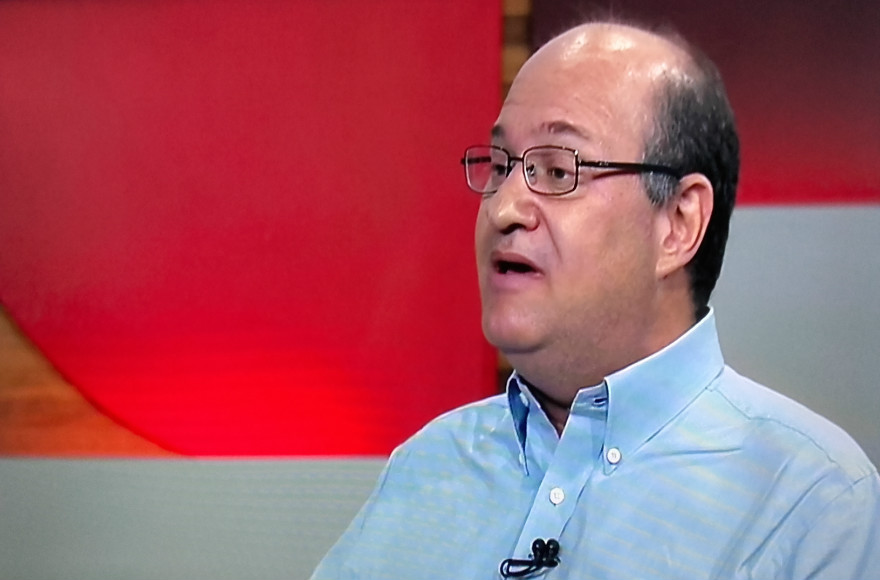
Ilan Goldfajn, an Israeli-born economist, was named governor of the Central Bank of Brazil on May 17, 2016. (Marcus Moraes)
RIO DE JANEIRO (JTA) — Ilan Goldfajn, an Israeli-born economist with an acknowledged career in both the public and private sectors, was confirmed Tuesday as president of Brazil’s Central Bank.
Goldfajn, 50, a Haifa native who was raised in Rio de Janeiro, has served as chief economist at Itau, Brazil’s largest private bank, and deputy to the bank governor of Brazil, as well as adviser to the World Bank and the International Monetary Fund.
He is an active member of the Brazilian Jewish community and was educated in Rio’s Liessin Jewish day school. In a May meeting held by the Brazil-Israel Chamber of Commerce, Goldfajn said “Brazil has a lot to learn from Israel.”
Last year, Goldfajn argued during an Israel-Brazil chamber event in Tel Aviv that the deep economic crisis affecting Brazil stems from a lack of fiscal responsibility. In response, he said, Brazil must boost exports and raise taxes, cut government spending and raise the retirement age.
An outspoken critic of the corruption and socioeconomic gaps in Brazil, Goldfajn will face a series of monetary and economic challenges. Latin America’s largest nation is struggling with its worst recession in nearly a century, including the prolonged erosion of the Brazilian currency, the real, steadily rising inflation and the pessimistic projections of a negative 3 percent growth in 2016.
Last week, Michel Temer was named Brazil’s interim president replacing the suspended Dilma Rousseff, who is facing impeachment over her alleged manipulation of the state budget. At the time, Temer had put forward Goldfajn’s name as the mostly like to head the central bank, but Finance Minister Henrique Meirelles delayed the announcement of his economic team until Tuesday.
Fluent in Hebrew, English, Portuguese and Spanish, Goldfajn has a doctorate from the Massachusetts Institute of Technology as well as bachelor’s and master’s degrees from the Pontifical Catholic University of Rio de Janeiro. In the mid-1990s he was a professor at Brandeis University, followed by a stint as an economist at the International Monetary Fund.
He said he dedicated his career to his father’s advice on the importance of studying.
“I only stopped my formal studies at almost 30,” Goldfajn told Educate to Grow magazine in 2012. “This was key to my life in economics, which is also based on studies. Right after I graduated, I thought of working and my father showed me I could invest in me more.”
JTA has documented Jewish history in real-time for over a century. Keep our journalism strong by joining us in supporting independent, award-winning reporting.






